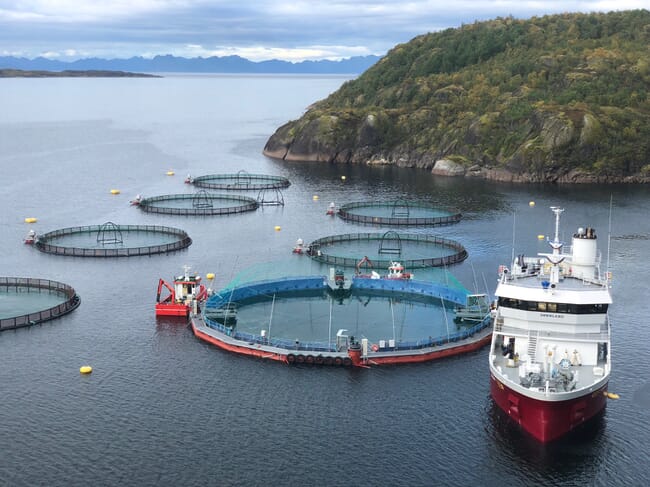
The reduction in emissions was the result of trialling Poseidon’s new Flowpressor aeration compressor systems at two of Cermaq’s 16 operational farm sites in British Columbia. The trial took place at the Simmonds Point and Wehlis Bay farms from May through November 2021 and involved using Flowpressors to power Cermaq’s standard Harmful Algae Bloom systems instead of conventional diesel compressors.
“The trial demonstrated the viability of the Flowpressor technology to power our existing conventional bloom mitigation equipment, while producing 60 percent less greenhouse gas emissions. The overall result is that we have slashed emissions and dramatically reduced our fuel costs while improving overall performance of the mitigation system” said Brock Thomson, Cermaq Canada’s Innovation Director.
“We’re thrilled with the results of the trial” said Matt Clarke, CEO and Co-Founder of Poseidon Ocean Systems. “When we developed this technology we projected a 60 percent reduction in emissions while also improving the performance of their aeration systems, but I think it was fair for customers to be a bit sceptical of those claims. Now that we’ve delivered as promised, we couldn’t be happier. This is a result our engineering team can be very proud of.”

Poseidon’s Flowpressor technology was the recipient of Innovate BC’s first-ever Aquaculture Innovation Award in 2021, and based on that success, Poseidon was awarded a BC Fast Pilot Program grant of over $180,000 to develop an oxygen-generating variant of Flowpressor, dubbed Oxypressor, which fittingly will be trialled at a Cermaq site in early 2022.
“Cermaq Canada has been at the leading edge of life support systems development globally, as you can see with their extensive use of highly efficient oxygenation systems as well as advanced aeration systems and their trials with floating closed containment systems. They really deserve full credit for being the first to deploy Flowpressors on fully operational salmon farms” Clarke added. “We expect that Poseidon can help Cermaq achieve the accomplishment of having the greenest life-support systems in the world.”




